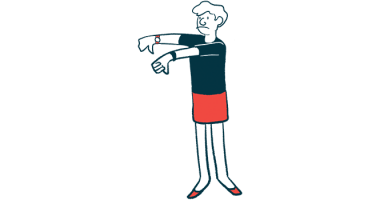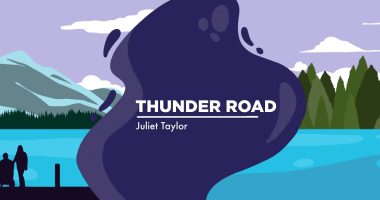My husband is now navigating sixth nerve palsy on top of ALS
We're hopeful that this eye condition, unlike ALS, will soon resolve itself

My husband, Todd, woke to double vision after a week of severe headaches. He was discouraged because his vision was one thing he had left after 14 years of ALS taking most of his muscles. I scheduled an appointment for him to see an ophthalmologist on Monday of last week, the soonest he could get in.
I was concerned that Todd was entering a new phase in his ALS decline. I’d heard that although people with ALS usually retain their ability to move their eyes, on rare occasion they lose that ability, too. I searched online and found a study that showed a possible link to vision issues for people with ALS.
After a thorough eye exam, the ophthalmologist diagnosed Todd with sixth nerve palsy. A muscle in his left eye isn’t fully functioning; he sees one image when he looks to the right, but as his eyes move to the center or left, he sees double. It gave him peace of mind to know what was happening.
But we’re still left with the question of why it happened.
Managing a second disability
I asked the doctor if sixth nerve palsy could be related to ALS. I read her the abstract of the study I’d found, but she said that it was referencing a different nerve than the one in question with Todd.
Todd didn’t think his eye issues were because of ALS, anyhow, because with every other muscle that had weakened, he’d first noticed it when he was fatigued; after resting, it’d be stronger. In this case, though, he’d wake with double vision after resting all night.
The ophthalmologist said his sixth nerve palsy could be idiopathic (of no known cause), but she wanted Todd to go straight to the emergency room to have possible underlying issues evaluated. It’d be the quickest way of getting bloodwork results back, and if Todd were having an inflammatory response, for example, she could prescribe corticosteroids.
At the hospital, Todd’s bloodwork came back fine; he wasn’t having an inflammatory response. The ER doctor then recommended a CT scan to look for other possible causes, such as a blood clot, aneurysm, or tumor. We discussed various courses of action depending on what the scan found. She then asked Todd if he had a medical directive.
He does and said, “I would do something noninvasive, like steroids or blood thinners, but at this point I wouldn’t have surgery or chemotherapy.” He thus agreed to the CT scan because it could show vascular issues, such as a blood clot that could be treated with blood thinners.
After the scan came back fine, though, the doctor recommended an MRI for a better look. Todd declined that. It had turned into a long day with a lot of waiting, and Todd was exhausted and wanted to head home.
The doctor explained that double vision from sixth nerve palsy often clears up within a few months, assuming there’s no trauma or serious underlying condition, so we’re hopeful that that’ll be the case for Todd. It’s a welcome change to have hope for improvement while living with a disease where there’s only ongoing decline.
Todd slept better Tuesday night, his headache disappeared by Wednesday, and by Thursday his double vision started to improve. But he has a long way to go.
We’re patching one eye so he can see clearly with the other. That works OK while he’s at his computer, but it makes driving his wheelchair difficult. He has poor depth perception when using only one eye, and he’s clipped door frames and scuffed walls. I hope that’s short-lived and he doesn’t have to navigate this other disability for long.
Note: ALS News Today is strictly a news and information website about the disease. It does not provide medical advice, diagnosis, or treatment. This content is not intended to be a substitute for professional medical advice, diagnosis, or treatment. Always seek the advice of your physician or other qualified health provider with any questions you may have regarding a medical condition. Never disregard professional medical advice or delay in seeking it because of something you have read on this website. The opinions expressed in this column are not those of ALS News Today or its parent company, BioNews, and are intended to spark discussion about issues pertaining to ALS.








Comments
Lisa
I’ve tried Radicava with a multitude of side effects. Everything I’ve tried is giving me side effects. I’m not on anything right now. Does anyone have any suggestions?